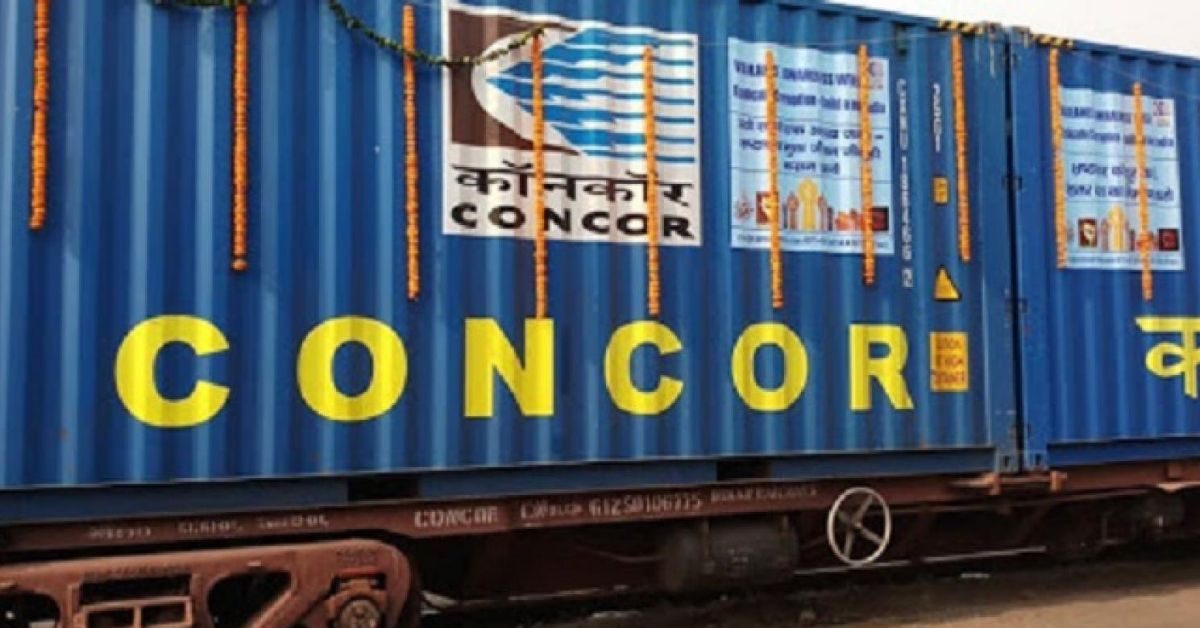Railways’ LLF policy was originally applicable to land let out for commercial purposes such as opening retail outlets such as shops, bookshops, kiosks, etc, but it was extended to container business (industrial use) in FY21.
The ministry of railways has circulated a draft Cabinet note on the lease policy for industrial use of railways land, a move that will bring down the railways’ land licensing fee (LLF) to 2-3% from the current level of 6%.
The much-awaited policy, which may also extend the land lease period from 5 years to 35 years or more, will facilitate the privatisation of state-run Container Corporation (ConCor).
The ConCor stake sale process will begin as soon as the new land-use policy of railways is approved by the Cabinet, a senior official told FE.
At last Wednesday’s closing price of Rs 697.65, the Centre’s 30.8% stake was worth Rs 13,092 crore on the BSE. On November 20, 2019, the Cabinet had given its nod to sell 30.8% out of its 54.8% holding in ConCor, a railway PSU, along with management control to a strategic buyer.
However, the sale process, which was planned to be completed within FY21, has spilled over to this financial year due to lack of clarity on LLF. The new land-use policy could encourage commercial use of these land parcels along rail tracks.
In April 2020, the railways notified a LLF regime for industrial use of its land, and extended it to its very own Concor. Until then, Concor had been paying land lease rentals to the transporter on a per-container (20-feet equivalent unit container) basis, which entailed much lower outgo. The LLF being charged by the transporter now is 6% of land value in the first year of licence; the rate will increase at a rate of 7% annually to factor in inflation.
The new regime has proven to be expensive for Concor – while it paid Rs 120 crore as land rentals to the railways in FY20, it paid Rs 520 crore in FY21.
According to an ICICI Securities note, ConCor is expected to pay Rs 450 crore as LLF charges for FY22, as it intends to surrender two more rail terminals and also rightsizing of existing terminals (including its flagship Tughlakabad terminal). The management is also working on an alternative path with Indian Railway to purchase the 24 terminals it operates on the IR land for 35 years (at 99% of the current market price), which is expected to range at ~Rs 6,000-7000 crore), to be funded by a mix of cash on its books (~ Rs 2,500 crore) and external debt, it said.
According to official sources, the railways could make first-year LLF rate 2-3% and annual inflation rate would be a more realistic 5% or the average annual retail inflation. Earlier railways ministry was reluctant to reduce LLF substantially from 6%.
Concor has over 60 inland container depots and some 24 of these are situated on the railway land. Even before the latest rate revisions, the cost of using railways land was higher for the company, than what it had to fork out to farmers and other land sellers.
Railways’ LLF policy was originally applicable to land let out for commercial purposes such as opening retail outlets such as shops, bookshops, kiosks, etc, but it was extended to container business (industrial use) in FY21.
The earlier mode of LLF payment provided certain advantage to the company compared with other private container terminal operators. Earlier method of payment was based on Concor’s volumes (Rs 1,175/TeU).
Post-2005, Concor has not picked up any land from railways as it bought land along rail tracks from farmers at cheaper rates.
Source : Financial Express







